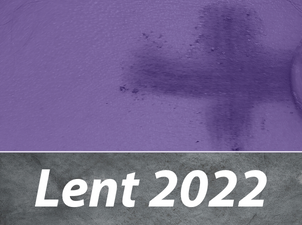
Lent 2022, Week 4: Lent Calls Us to See True Gifts
Wealthy white people cling to the narrative that they’ve earned their wealth and shouldn’t have it taxed, while Black and Brown families whose sweat and blood built that wealth for white families face heavier tax burdens and fewer tax benefits. The reality, though, is that all we have is gift. The whole of Creation and our very lives are unearned gifts from God.
View earlier Lenten Reflections: Ash Wednesday | Week 1 | Week 2 | Week 3
Emily TeKolste, SP
March 25, 2022
[su_row][su_column size=”2/3″ center=”no” class=””]Watch Tax Justice For All – Week 4 (starting at at 19:06).
This week, we explore the impact of tax codes on employment-based income and reveal preferences enjoyed by the well-resourced. Areas like Joint filing bonuses, Earned Income and Child Tax Credits, and corporate CEO compensation are discussed. Did you know that in the last 40 years, CEO’s compensation has increased 1,070%; but typical workers’ compensation has increased by 11%? [su_youtube url=”https://youtu.be/r4q9c0WYIFg” width=”360″ height=”300″ title=”Watch NETWORK Lobby’s Tax Justice For All Series for Your Lenten Reflection”] Following his election nine years ago, Pope Francis spoke of desiring “a church that is poor and for the poor.” We must always remember whose Good News we proclaim – Good News for the poor.
Questions for reflection:
- Do our policies live up to that promise of good news for the poor?
- How can we be for those who are unjustly burdened by our system?
- How can we witness to the actions of Jesus and reflect the values of the Good News that casts down the mighty from their thrones, lifts up the lowly, and sets captives free?
Thank you to my NETWORK Grassroots Mobilization teammate, Colin Martinez Longmore, for co-leading us through these lessons. We’ll watch more together next week!
[/su_column][su_column size=”1/3″ center=”no” class=””]Today we celebrate the Annunciation, the feast of the shocking announcement of an angel to a young Palestinian girl that God would enter into and redeem human history in the humble form of a child born to her. Her response “How can this be, since I have no relations with a man?” could be read as ‘I have done nothing that could have caused this to happen.’ It’s a reaction of amazement and grace, recognizing the great generosity of God.
This past weekend, I participated in a discussion group for one of my sisters who is preparing to profess final vows this summer. A group of eight sisters – some who have lived religious life for over 50 years – gathered to discuss the vow of poverty and reflect on the related chapter from Sr. Juliet Mousseau’s new book, Prophetic Witness to Joy: A Theology of the Vowed Life. One theme that stuck out for me from this reading and the discussion was that of believing that all we have is gift.
In communal ownership, the vow of poverty, women religious abandon the idea of the need to earn basic sustenance for ourselves and for all in society. [/su_column][/su_row]
As Sr. Juliet says, “A practical result of this common ownership and sharing is to remove the connection between what I have earned and what I can spend. No longer is personal worth or worthiness equated to financial income.” She continues, “In disavowing personal wealth and ownership, we also recognize that all we have is gift…Because those resources are recognized as gift, they must be used for the benefit of the society as a whole.”
In my work over the past couple of years, particularly in researching and teaching about injustice in the U.S. tax code, I see how little the attitude of gift is reflected in our society, especially in light of the giftedness that wealth and it’s preferential treatment in the U.S. tax code are to white people in our country. White families benefitted from stolen land and stolen labor to build their wealth and then built a tax code that preferences the ultra-wealthy while taxing most Black and Brown families at higher rates due to their lower levels of wealth.
Wealthy white people cling to the narrative that they’ve earned their wealth and shouldn’t have it taxed, while Black and Brown families whose sweat and blood built that wealth for white families face heavier tax burdens and fewer tax benefits. The reality, though, is that all we have is gift. The whole of Creation and our very lives are unearned gifts from God.
Perhaps this is why immediately after the angel announces to her the gift of Jesus, Mary proclaims the “Magnificat,” a prayer that declares and celebrates a God who casts down the mighty and lifts up the powerless. This prayer is a continuation of the entire prophetic tradition of the Hebrew Scriptures and a precursor of the Gospel – the Good News of Jesus’s life.







